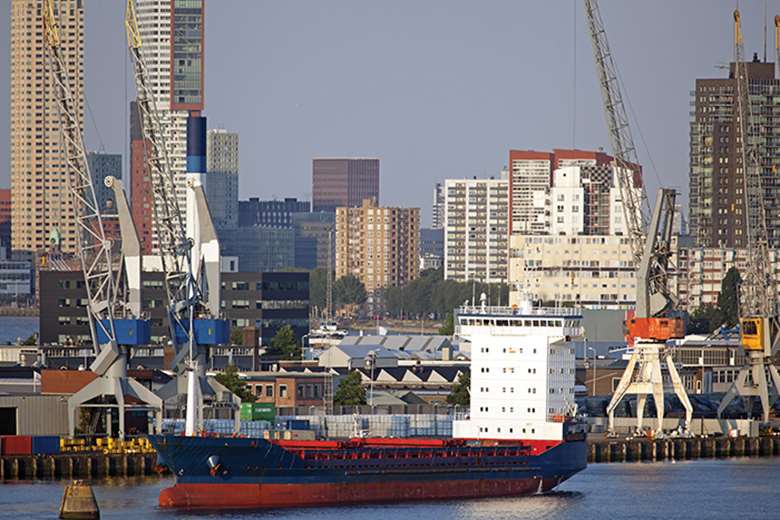International Focus: Improving social mobility in Rotterdam
Derren Hayes
Thursday, June 29, 2017
With a population of 630,000, Rotterdam is the second largest city in The Netherlands. It is home to the largest port in Europe - which employs 140,000 people - and has a multi-ethnic population with 170 nationalities living there.

The Netherlands has an unemployment rate roughly half the European Union average, but the fall in global trade as a result of the economic crisis in late 2000s has seen the rate rise.
While the Neet (not in employment, education or training) rate is less than half the EU average, unemployment among migrant young people is three times that of "native" Dutch peers.
The south of the city has the highest levels of migrant citizens and unemployment. In 2011, a 20-year programme launched to transform the prospects for South Rotterdam by improving the education and skills of children and young people.
CULTURE AND GOVERNANCE
The country has a decentralised system for tackling poverty, largely leaving policymaking to local government. However, National Programme South Rotterdam is the exception. The city and national authorities agreed to work together to regenerate the physical environment and economic and social opportunities for the area, in partnership with social housing bodies, schools, local businesses and non-governmental bodies.
Ahmed Aboutaleb, who moved to The Netherlands from Morocco aged 15 and is serving a second term as mayor of Rotterdam, has been instrumental in developing the programme.
Improving integration and the sense of community among South Rotterdam's minority population, many of whom do not speak Dutch as a first language, has been a key part. Under the programme, integration is defined as participating in civic life, respecting the fundamental value of Dutch democratic law and helping co-create with others the city's future.
Finding work, learning the language and enrolling in education is central to integrating into Rotterdam society, so policies have been developed through the programme to offer extra state support to help residents achieve this.
POLICY AND REGULATION
Aboutaleb accepts that "some people cannot be motivated to get a job", but says the ethos behind his "We community" vision for Rotterdam is that all partners in the programme should do all they can to ensure children living in disadvantaged families "have the chance to go to university".
To that end, the city government has invested in funding schools to stay open an extra eight hours a week "so that children get enough attention on reading, writing and mathematics".
The programme also targets improving links between employers and the education system. Two vocational schools, STC Waalhaven and RDM Campus, were set up in direct contact with companies and enterprises related to the logistics and harbour sectors to ensure that young people are learning skills that local employers need.
The city council has introduced a social return policy under which all city-funded projects over ¤15,000 have to allocate between five and 50 per cent of their budget (depending on type of project) for employment opportunities for disadvantaged groups. These projects amount to ¤800m a year.
At a national level, the Investment in Youth Act (2009) requires young people aged up to 27 to participate in work placement and learning opportunities to receive unemployment benefits.
PRACTICE
The Bloemhof primary school in the city's Feijenoord district serves 350 children, 90 per cent of whom have a parent born abroad. Over the past decade, it has introduced a range of measures to boost the social mobility of its pupils.
Children are taught to be more confident in expressing themselves. Each week, pupils spend two hours working on projects that use artistic methods such as plays, painting and dance to express their views across subjects including science, history and geography.
Physical education is also highly valued at the school, with children learning how to cook nutritious meals, stay fit and participate in sport. This engenders a sense of respect for themselves and others, and gives them opportunities that disadvantaged children often miss out on due to their parents' lack of economic means and knowledge.
The programmes are carried out by teachers, support staff, artists, sports teachers, philosophers, ecologists, a professional cook and 40 volunteer mothers of pupils.
IMPLICATIONS FOR THE UK
By Enver Solomon, director of external affairs, NCB
The lessons from Rotterdam should provide food for thought for the recently elected mayors in Manchester, Liverpool and elsewhere. With the government having said it wants to bolster the powers of regions to deliver powerful economic regeneration, health and social care reform, it is still unclear how this will now be implemented. However, any regeneration strategy needs to be holistic and comprehensive, taking a multi-dimensional approach to tackling child poverty and disadvantage.
The Greater Manchester Health and Social Care Partnership has developed what on paper looks like an impressive plan for giving every child in the region the best start in life. The early years strategy sets out ambitions across maternity support, health visiting, early education and childcare, with commitments to deliver integrated commissioning, breaking intergenerational poverty and working with local communities. However, it is by no means a comprehensive children and young people's plan and while it should in theory contribute to improved social mobility and early help, there is a long way to go.
Rotterdam may provide some interesting policy insights, but tackling poverty, improving social mobility and delivering early intervention are complex long-term goals that require national policy reform to benefits, wages, education and training, as well as devolved solutions.




